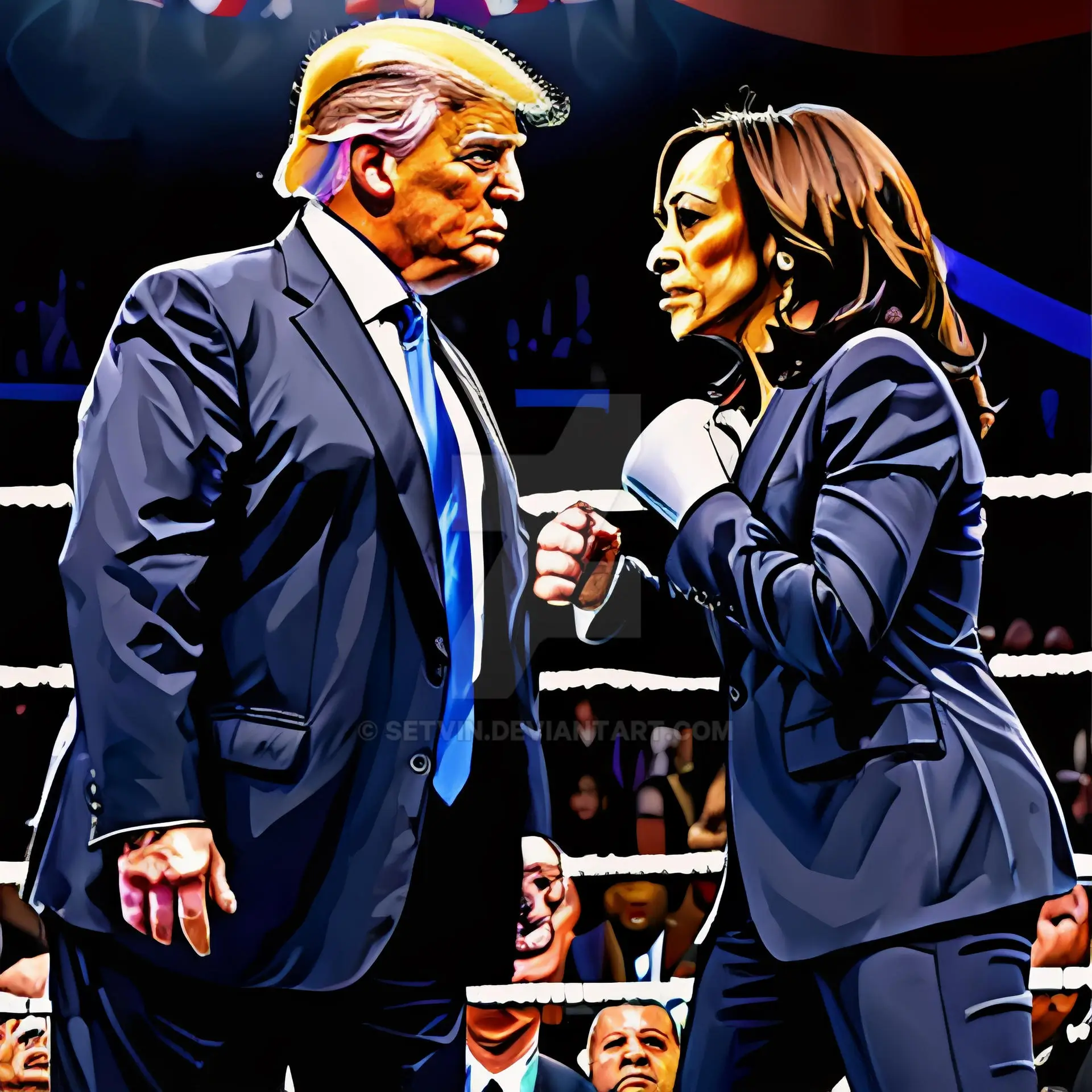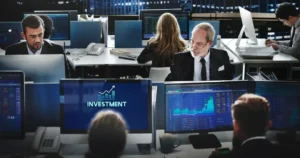Everyone is getting excited for the Trump-Harris debate. Both the stakes and the possible monetary ramifications are rather substantial. If you are an investor who closely follows political discourse or just an interested bystander, you must know when and how to watch the discussion, as well as the ground rules. Examining the potential effects of tonight’s discussion on the financial markets requires us to go into the nitty-gritty.
When Is the Trump-Harris Debate?
The discussion between Trump and Harris, the former vice president, is scheduled to start at 8:00 PM ET tonight. On the West Coast, this is equivalent to five o’clock in the afternoon, or PT. Political experts and financial markets both see this prime time period as crucial because of the highest audience it is intentionally targeted to grab.
How to Watch the Debate
There are a few ways you can watch the action unfold if you’re really interested:
- Television: networks including CNN, ABC, CBS, and NBC will provide live coverage of the discussion. Your cable or satellite TV provider is the best bet if you like more conventional forms of media.
- Streaming Services: Hulu + Live TV, YouTube TV, FuboTV, and other streaming services will make the debate accessible to those who prefer digital platforms. If you haven’t already enrolled, you might want to look into these sites because they all offer free trials.
- Official Websites: The official websites of the Trump and Harris campaigns will most likely have live streaming. Without the commercial breaks and analyst comments that characterize network coverage, these streams provide an unbiased look at the argument.
- Social Media: Twitter, Facebook, and Instagram, among others, will provide live updates and video footage. If you’re always on the move, your smartphone might be a lifesaver because many news organizations offer real-time coverage.
The Rules of Engagement: How the Debate Will Unfold
The candidates’ arguments and their potential impact on the financial markets can be better understood by familiarizing oneself with the rules of the discussion. Everything you need to know is outlined below:
- Format: The debate will be organized in a chronological fashion with certain times allotted to each section. Opening remarks, a moderated discussion on important topics, and closing remarks are the standard format for such events. Every candidate has a fair chance to speak and answer to their opponent under this system.
- Moderation: A third party, such as an impartial journalist or debate moderator, will ask each candidate questions designed to keep the discussion on track. Maintaining civility, objectivity, and concentration during the discussion is the moderator’s responsibility. Economic policy, international relations, and social concerns are just a few of the areas you may anticipate being asked about.
- Time Limits: There will be allotted a certain amount of time for each contender to react to questions and counter their opponent’s statements. This ensures that the conversation remains fair and organized. To guarantee that every candidate gets an equal opportunity to speak, the time limitations are rigidly maintained.
- Fact-Checking: In today’s digital era, fact-checking is a crucial component of every conversation. You can count on several news sources and social media sites to verify claims in real time. Public opinion and, by extension, market responses, are susceptible to this kind of analysis.
- Audience Interaction: While it is not frequent, some debates do allow the audience to ask questions or provide feedback. If they are there, audience reactions can tell us how the public feels, which can affect our market predictions.
The Financial Impact: What to Watch For
Several important factors will be closely watched by investors and experts as the discussion progresses:
- Economic Policies: Tax policies, trade deals, and stimulus programs are all possible topics of discussion between Trump and Harris. Stock prices, bond rates, and currency values are all susceptible to shifts in market mood, which can be caused by any major proposals or shifts in tone.
- Market Reactions: Immediate market volatility has been known to occur as a result of arguments in the past. Investors frequently respond to fresh details or shifts in the candidates’ stances. In the time leading up to and following the discussion, keep an eye on the stock market for any sudden changes.
- Public Perception: Voters’ opinions and, by extension, financial backers’ trust, are susceptible to the candidates’ shows. The short-term direction of market movements can be influenced by public opinion, both positively and negatively. Traders adapt their tactics according to how they think certain policy outcomes will play out.
- Sector-Specific Impacts: A greater or lesser degree of change may occur in some industries as a result of the candidates’ platforms. The energy stock market, for example, would react to talks about environmental legislation, while the consumer products and technology industries could react to promises for economic stimulation.
- Long-Term Implications: While the short-term responses of the market are vital, it is also necessary to think about the consequences in the long run. Future policy orientations, which are up for dispute, have the potential to impact investment plans and larger economic trends.
Preparing for the Debate: Financially Savvy Tips
Here are a few pointers for anyone whose financial plans might be affected by the debate’s results:
- Stay Informed: To stay abreast of how the dispute might affect markets, follow trustworthy financial news sources and analysis. The insights that may be gleaned from real-time updates and expert discussion are substantial.
- Monitor Market Trends: In the days preceding and after the debate, keep a watch on market indicators and movements. If you want to know how the market as a whole is reacting, you can use this information to make smart investments.
- Evaluate Your Portfolio: Take into account the possible effects of policy changes on your investments while evaluating your portfolio. Consider the potential impact on your portfolio of a candidate’s proposed changes to taxes or regulations, for instance, and make adjustments as needed.
- Consider Risk Management: Unpredictability is a Feature of Politics. To safeguard your assets against unforeseen fluctuations in the market, make sure you have risk management tactics like diversification and stop-loss orders set up.
Conclusion
A financial landmark will be marked by tonight’s Trump-Harris debate, which is more than just a political event. The discussion is set to start at 8:00 PM ET and will be available on a variety of traditional and digital media, so you won’t have to miss a thing. You can better handle the subsequent market changes and make educated judgements if you are familiar with the structure, regulations, and possible financial implications of the discussion.
As you get ready to watch, keep in mind that the timing and substance of these discussions may bring both opportunities and hazards to the world of finance. You may get strategic financial insights from tonight’s political dialogue if you keep educated and watchful.




